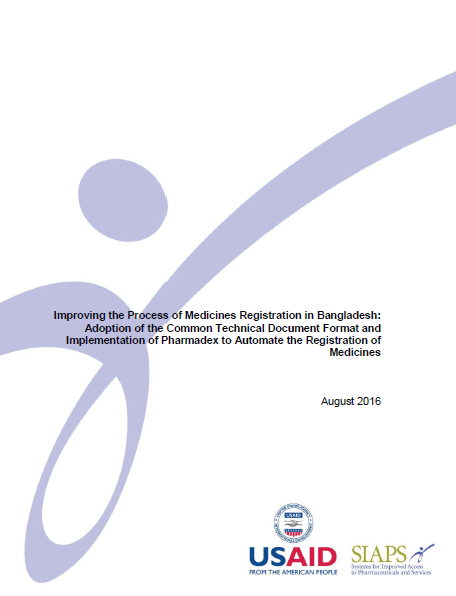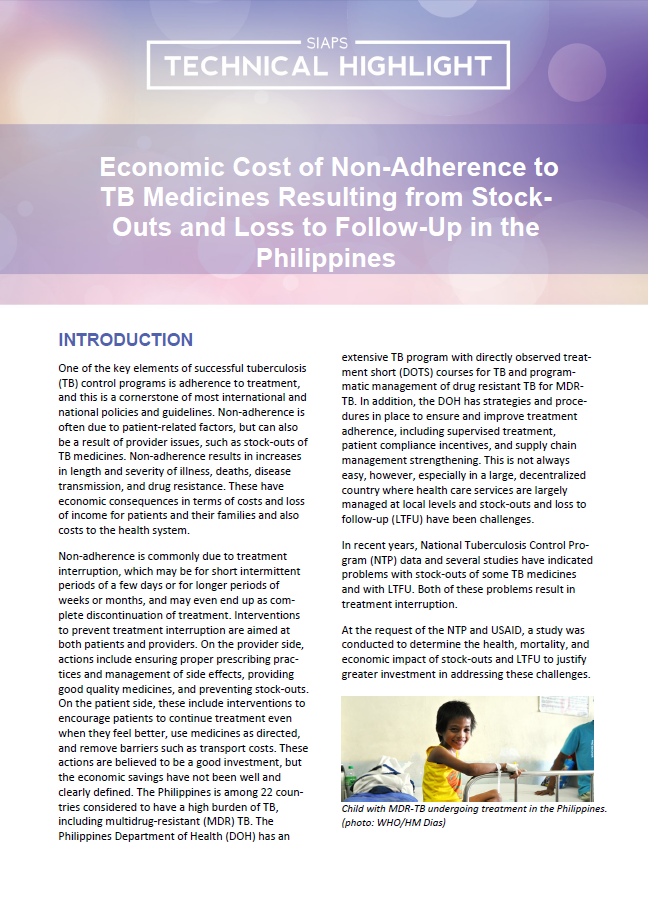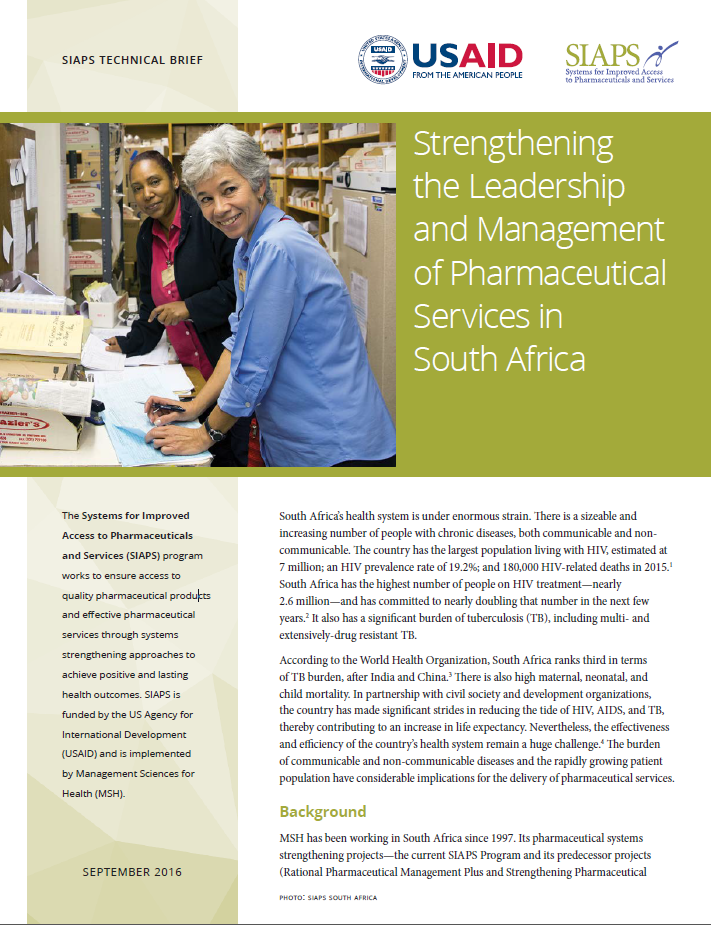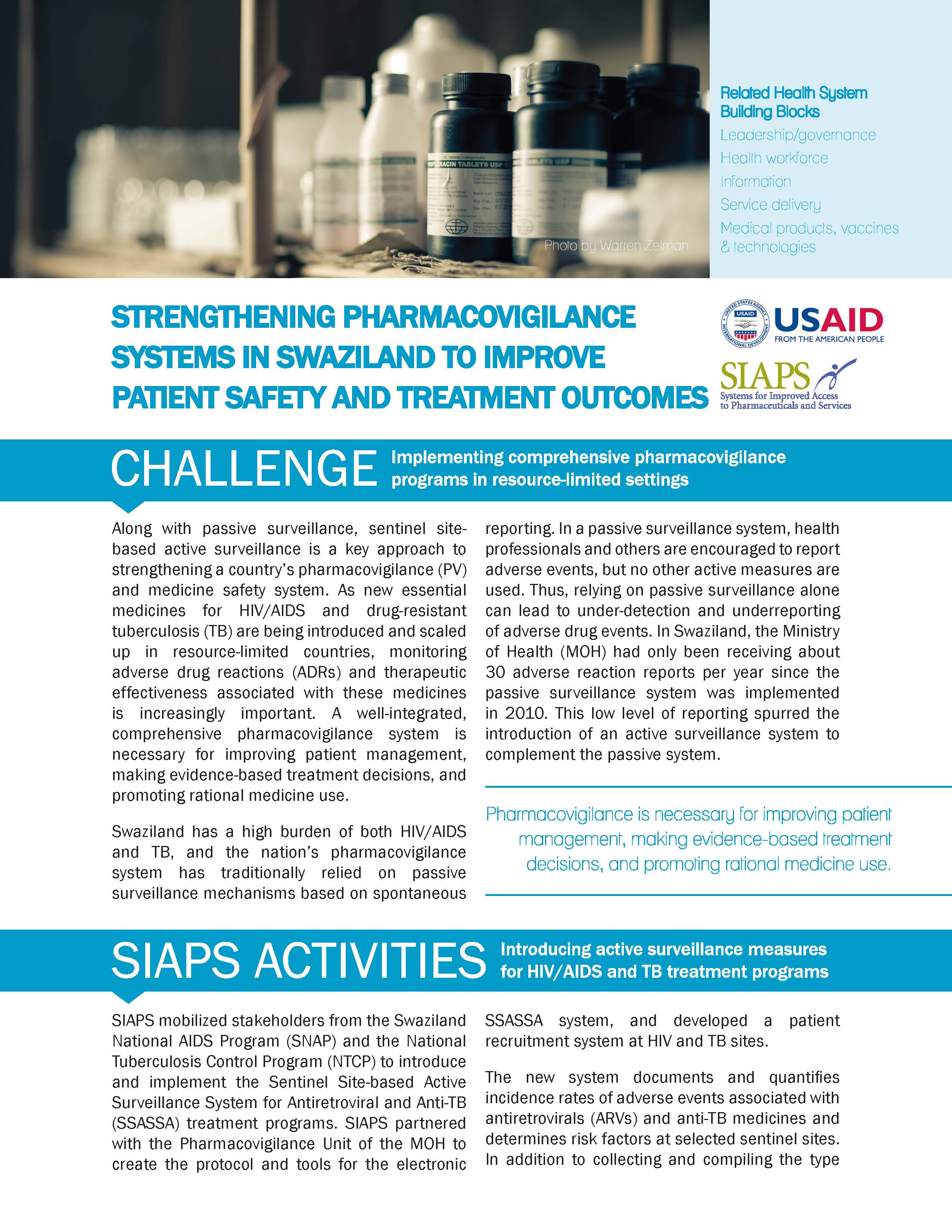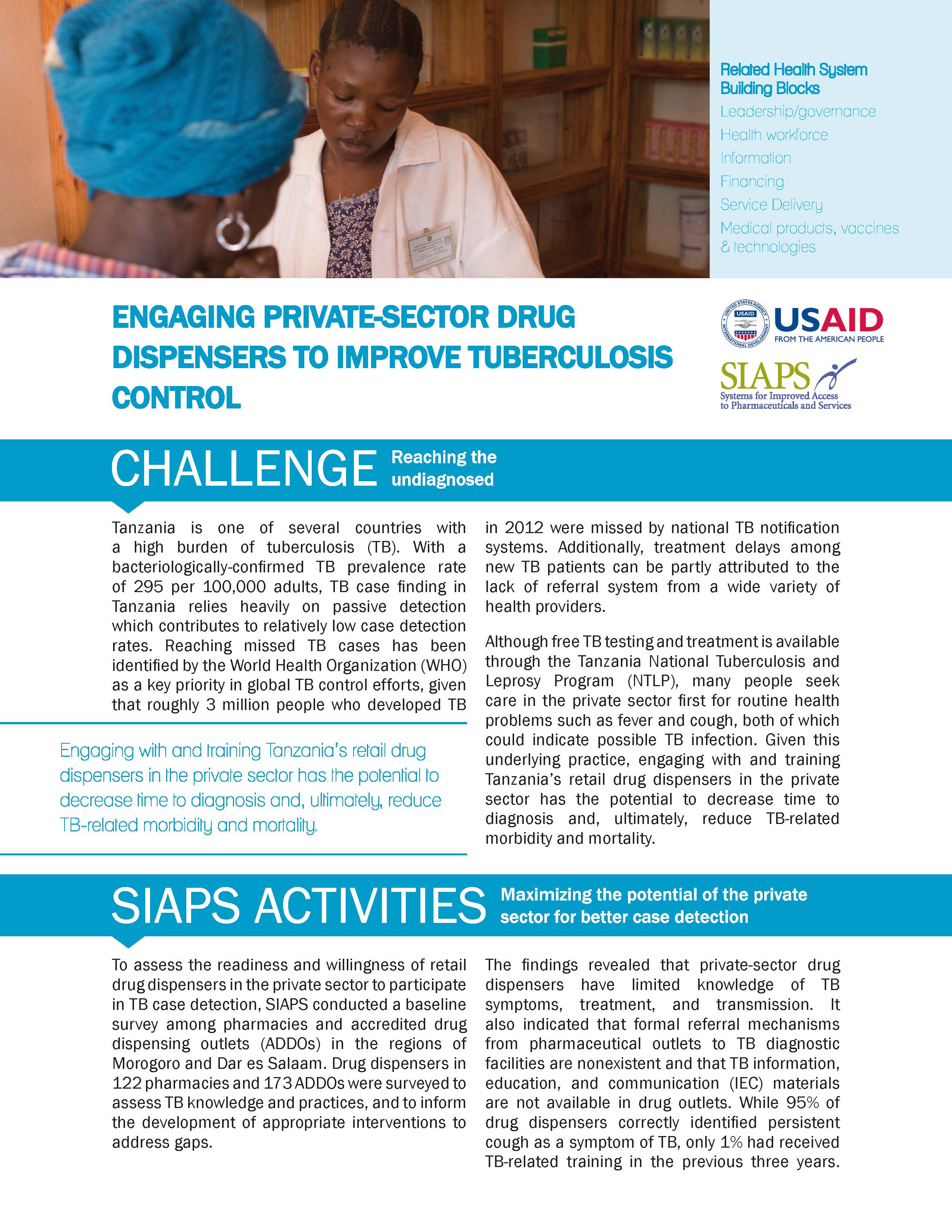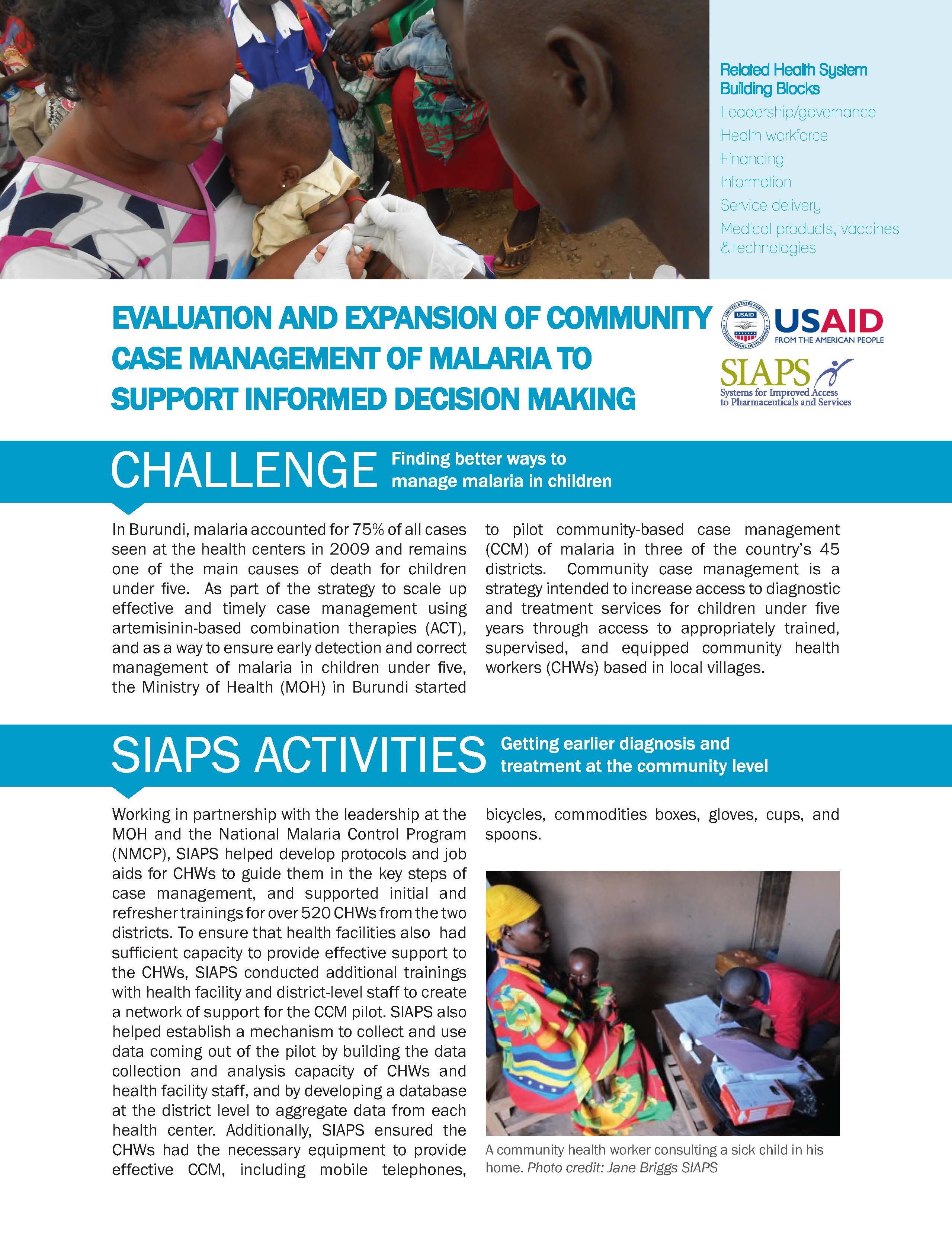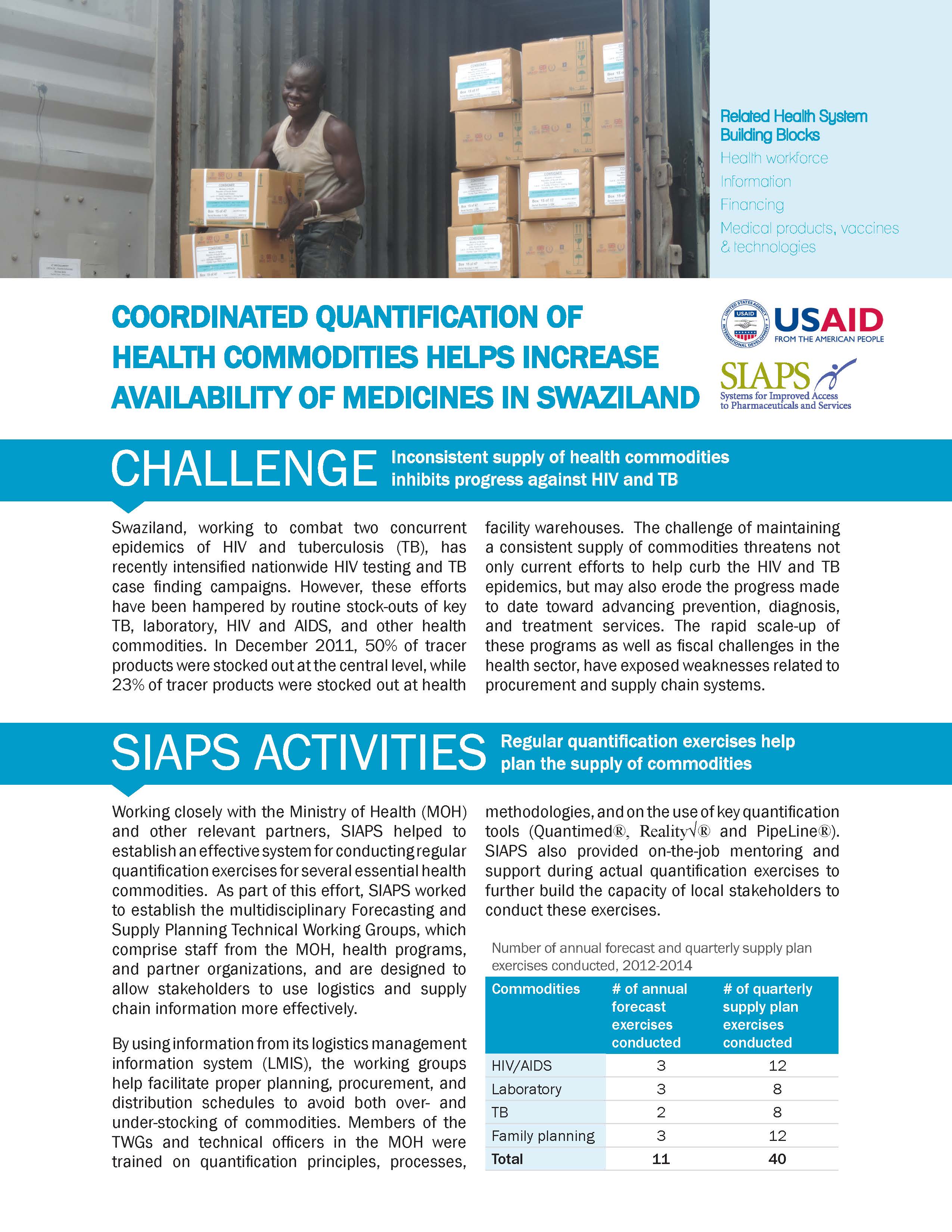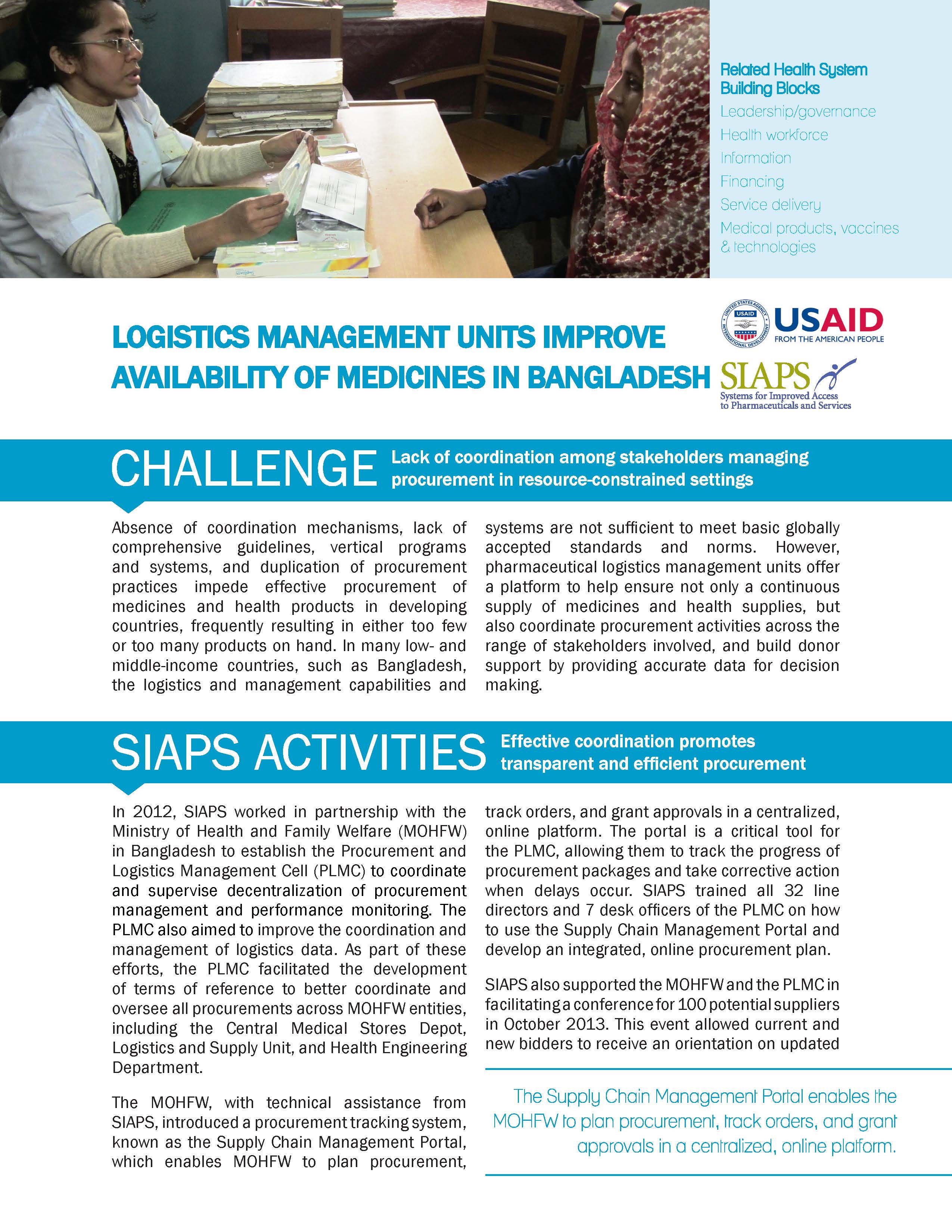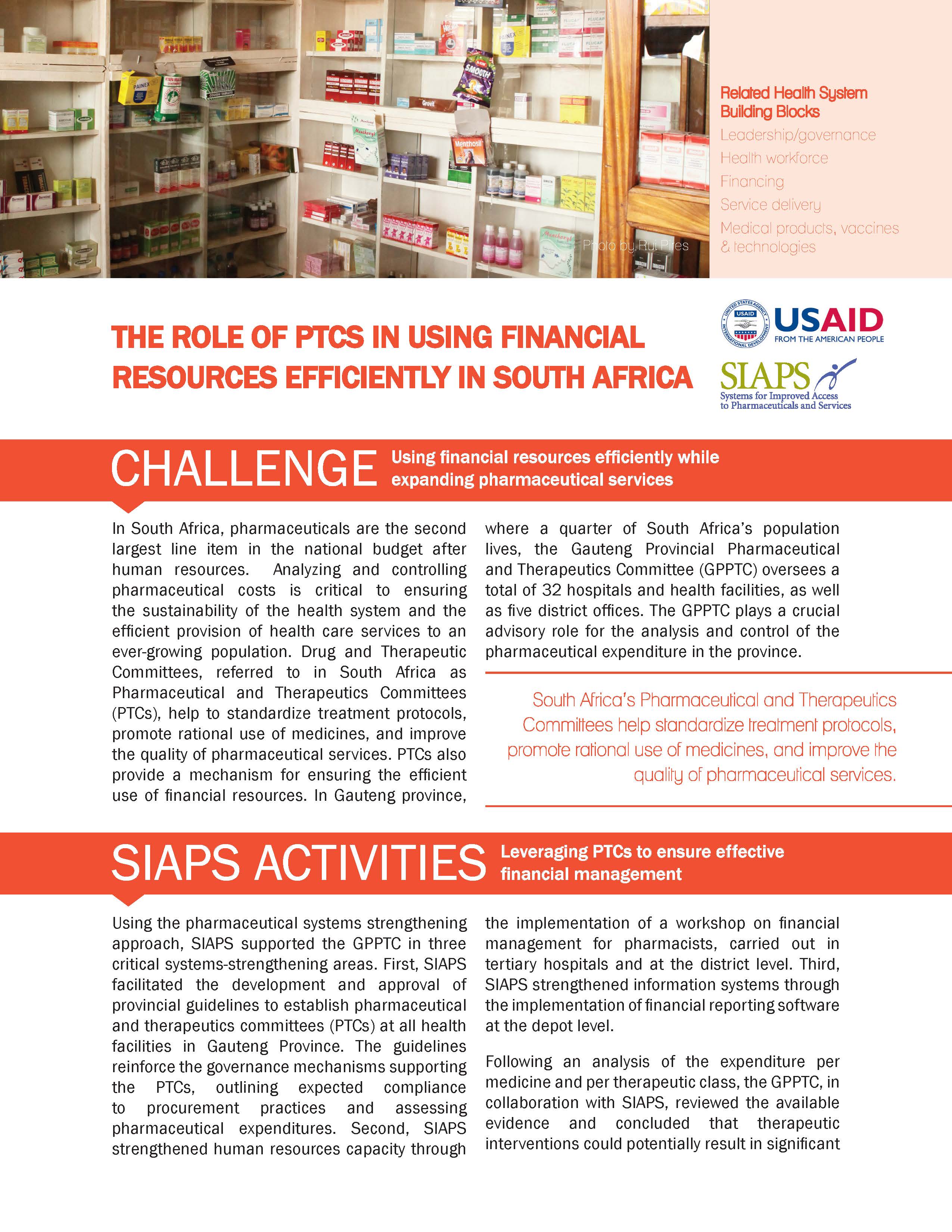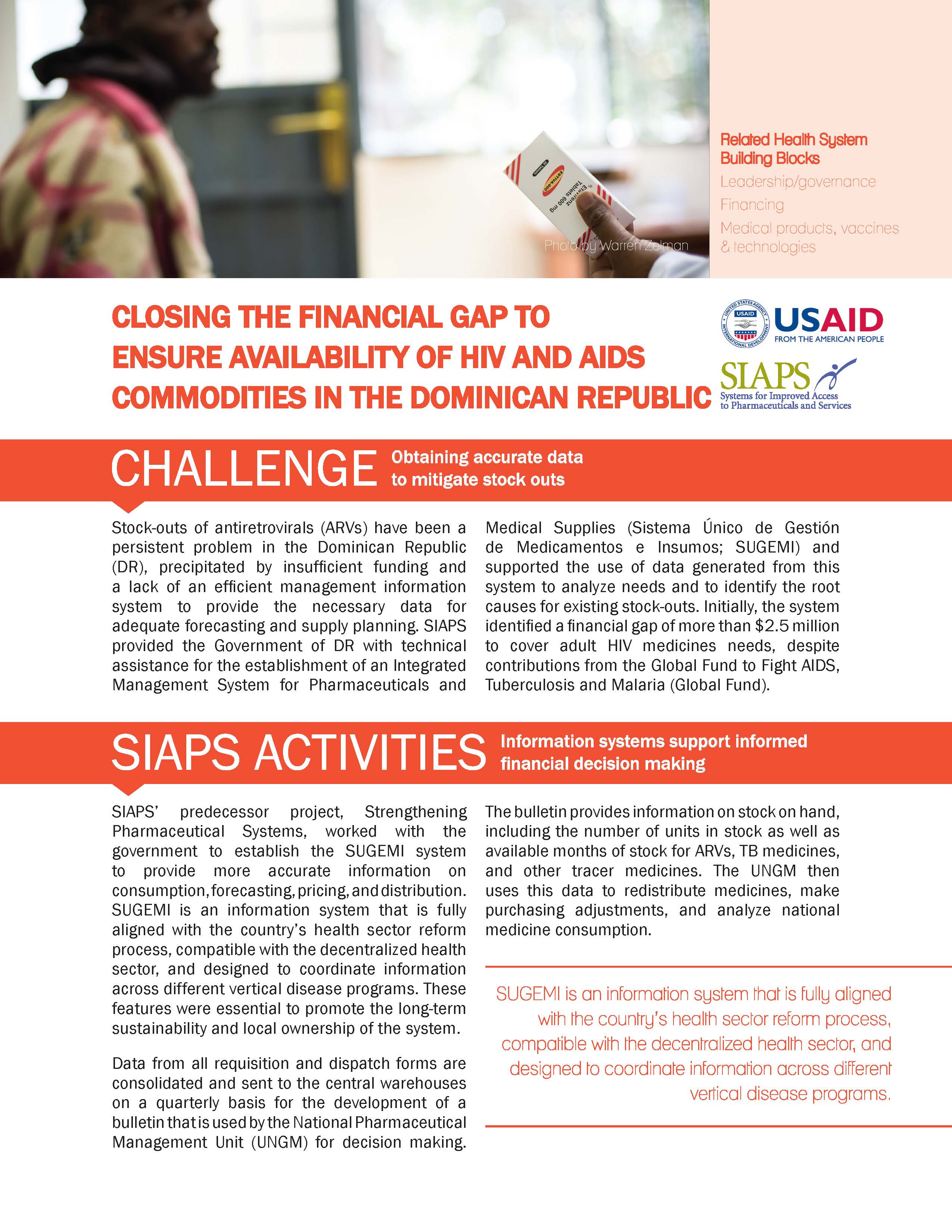SIAPS has been providing technical assistance to DGDA to improve its regulatory function by helping them adopt international standards for medicine registration based on a common format proposed by the International Council for Harmonization for Technical Requirements for Pharmaceuticals for Human Use (ICH), known as the Common Technical Document (CTD). The use of the format … Read more
One of the key elements of successful tuberculosis (TB) control programs is adherence to treatment, and this is a cornerstone of most international and national policies and guidelines. Non-adherence is often due to patient-related factors, but can also be a result of provider issues, such as stock-outs of TB medicines. Non-adherence results in increases in … Read more
South Africa’s health system is under enormous strain. There is a sizeable and increasing number of people with chronic diseases, both communicable and noncommunicable. The country has the largest population living with HIV, estimated at 7 million; an HIV prevalence rate of 19.2%; and 180,000 HIV-related deaths in 2015. South Africa has the highest number of people on HIV … Read more
SIAPS mobilized stakeholders from the Swaziland National AIDS Program (SNAP) and the National Tuberculosis Control Program (NTCP) to introduce and implement the Sentinel Site-based Active Surveillance System for Antiretroviral and Anti-TB (SSASSA) treatment programs. SIAPS partnered with the Pharmacovigilance Unit of the MOH to create the protocol and tools for the electronic SSASSA system, and developed a patient recruitment system at HIV and TB … Read more
To assess the readiness and willingness of retail drug dispensers in the private sector to participate in TB case detection, SIAPS conducted a baseline survey among pharmacies and accredited drug dispensing outlets (ADDOs) in the regions of Morogoro and Dar es Salaam. Drug dispensers in 122 pharmacies and 173 ADDOs were surveyed to assess TB knowledge and practices, and to inform the development … Read more
Swaziland, working to combat two concurrent epidemics of HIV and tuberculosis (TB), has recently intensified nationwide HIV testing and TB case finding campaigns. However, these efforts have been hampered by routine stock-outs of key TB, laboratory, HIV and AIDS, and other health commodities. In December 2011, 50% of tracer products were stocked out at the central level, while 23% of tracer products were … Read more
Absence of coordination mechanisms, lack of comprehensive guidelines, vertical programs and systems, and duplication of procurement practices impede effective procurement of medicines and health products in developing countries, frequently resulting in either too few or too many products on hand. In many low- and middle-income countries, such as Bangladesh, the logistics and management capabilities and systems are not sufficient to meet basic globally accepted standards … Read more
Using the pharmaceutical systems strengthening approach, SIAPS supported the GPPTC in three critical systems-strengthening areas. First, SIAPS facilitated the development and approval of provincial guidelines to establish pharmaceutical and therapeutics committees (PTCs) at all health facilities in Gauteng Province. The guidelines reinforce the governance mechanisms supporting the PTCs, outlining expected compliance to procurement practices and assessing pharmaceutical expenditures. Second, SIAPS strengthened human resources capacity through the implementation … Read more
SIAPS’ predecessor project, Strengthening Pharmaceutical Systems, worked with the government to establish the SUGEMI system to provide more accurate information on consumption, forecasting, pricing, and distribution. SUGEMI is an information system that is fully aligned with the country’s health sector reform process, compatible with the decentralized health sector, and designed to coordinate information across different vertical disease programs. These features were essential to promote the … Read more
